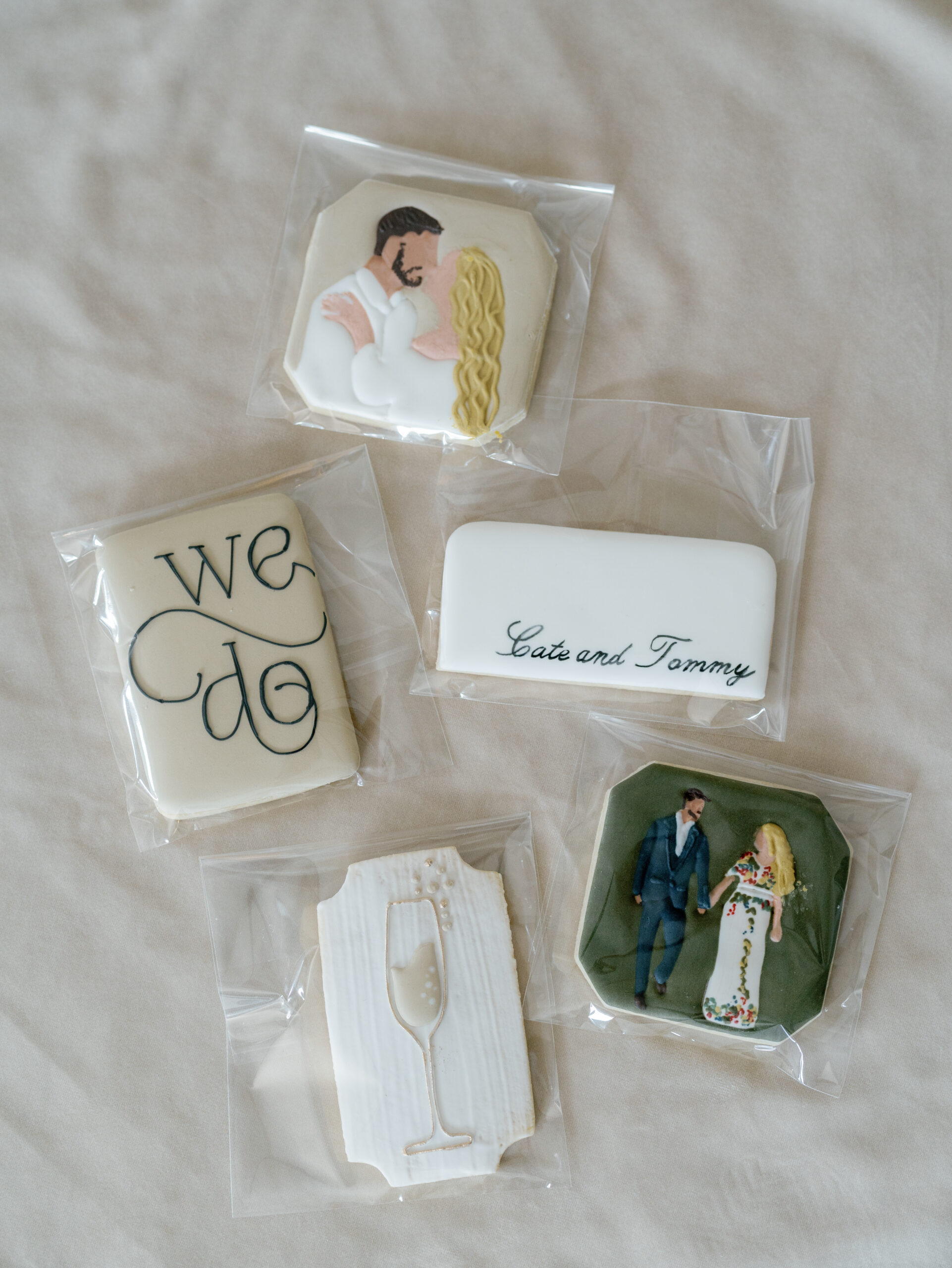No matter where you are in your wedding planning journey, well-meaning friends and family are probably offering you their advice. And while this might feel frustrating, know that their opinions and recommendations are (usually) shared with the best of intentions.
So, stay positive and assume that your loved ones only want to help. But also know that you can gracefully respond to their unsolicited opinions, whether you take them or leave them.
Here are a few ways to approach the opinionated and ruffle as few feathers as possible while wedding planning.
Hire a Wedding Planner
Consider this scenario: Your aunt calls wondering why the linen samples she sent you haven’t been included in your plans. Without a planner, you probably awkwardly tap dance around her question. Or worse, say something that ends up starting a fight. But with a planner, you don’t have to imagine this scenario. That’s the beauty of having us by your side.
As wedding planners, we’re pros at having tough conversations and delivering messages in a way that respects family and friends. And often, just the fact that we’re outsiders makes people take things less seriously.
So, hire a planner and you’ll have a fallback response to people’s recommendations and opinions: “My wedding planner has that handled.” At the end of the day, they’re your family for life so if I need to be the bad guy for you, I’m totally okay with that. Most of the time! 😉
Set Clear Boundaries
Boundaries are like doors; if they aren’t completely closed, they’re an invitation to enter. And one place where we see the door slightly ajar is with the guest list.
You may have family on both sides advising you to add so and so to the list. But the list keeps growing, and you’re unfamiliar with half the people.
And then there is the plus one issue. Who gets to bring someone, and who doesn’t? And how do you not offend anyone in the process?
Here’s where you’ll set some clear boundaries and stick with them.
Remember, this is your wedding, and you ultimately get to choose who attends. If you’re planning an intimate event with no more than 100 people, draw that line in permanent marker and reiterate the cutoff to whomever you need to.
Regarding plus ones, it’s not appropriate to decide Person A gets to bring a date because they’ve been together for a year, but Person B doesn’t because they’ve only been together six months. Giving more value to one relationship over another can definitely ruffle feathers.
Instead, create a line and stick with it to avoid offending. At my own wedding Adam and I defined our line in a few ways:
- All cousins were invited, but their kiddos stayed home.
- Any guest over 18 was invited with a guest, anyone under 18 was not.
Pick Your Battles
I know we just said to create firm boundaries, but there will be times when you’ll need to pick your battles and let things slide.
Your family is your family for the rest of your life, so if it’s a huge deal for your mom to invite two more cousins, it might be worth letting her.
Finding the happy medium for your family is important because, at the end of the day, making mountains out of molehills isn’t worth the drama
Keep Your Circle Small
The bigger your circle of people, the more unsolicited opinions and advice you’ll receive. And as we’ve already established, you don’t need everyone’s opinion.
Instead of bringing every bridesmaid to your appointments, create a core group. Maybe it only consists of your mom and sister, and that’s okay! You’ll avoid information overload and opinion overwhelm. That being said, if you do ask for people’s opinions, be prepared to hear them. If you don’t like what you hear, you’re free to discard it but curb an upset reaction. After all, you asked their opinion for a reason.
Have a Kind Response
When unsolicited advice comes your way, and you’re not sure what to say (or don’t want to involve yourself at the moment), have a canned response ready.
A kind but non-committal way to respond is by saying, “Thank you so much for your opinion! We’ll definitely take that into consideration.”
You can also be vague but equally as cordial by saying, “We’re not quite sure what we’re going to do for that,” or “We haven’t made a decision, but thank you for sharing.”
Consider Both Families
If you’re in a situation where one or both sets of parents are hosting the wedding, expect that they’ll have expectations. Yes, this is your wedding, and you should have the things you want, but you can’t operate from an egocentric space.
Not only are two people coming together but two families, and you’re putting on a party for everyone. That might mean including some traditions or incorporating heirlooms. It’s important to make sure your (future) mother-in-law feels included but only to the extent you’re comfortable with.
It helps if you look at it from a hospitality perspective and honor both sides of the family. Have a conversation with family members from the get-go about their expectations. In this way, people will feel included and heard.
Remember What it’s About
Ultimately, your wedding isn’t about having the perfect cake or what color you choose for the bridesmaid dresses. It’s about two people coming together and committing their lives to each other.
That’s what you have to remember as you juggle planning and the advice that will inevitably come your way. You don’t have to do it on your own, of course. We’re happy to take the planning out of your hands AND filter unsolicited opinions.
Remember, this is supposed to be fun! So if you need the assist, just send us a note!







